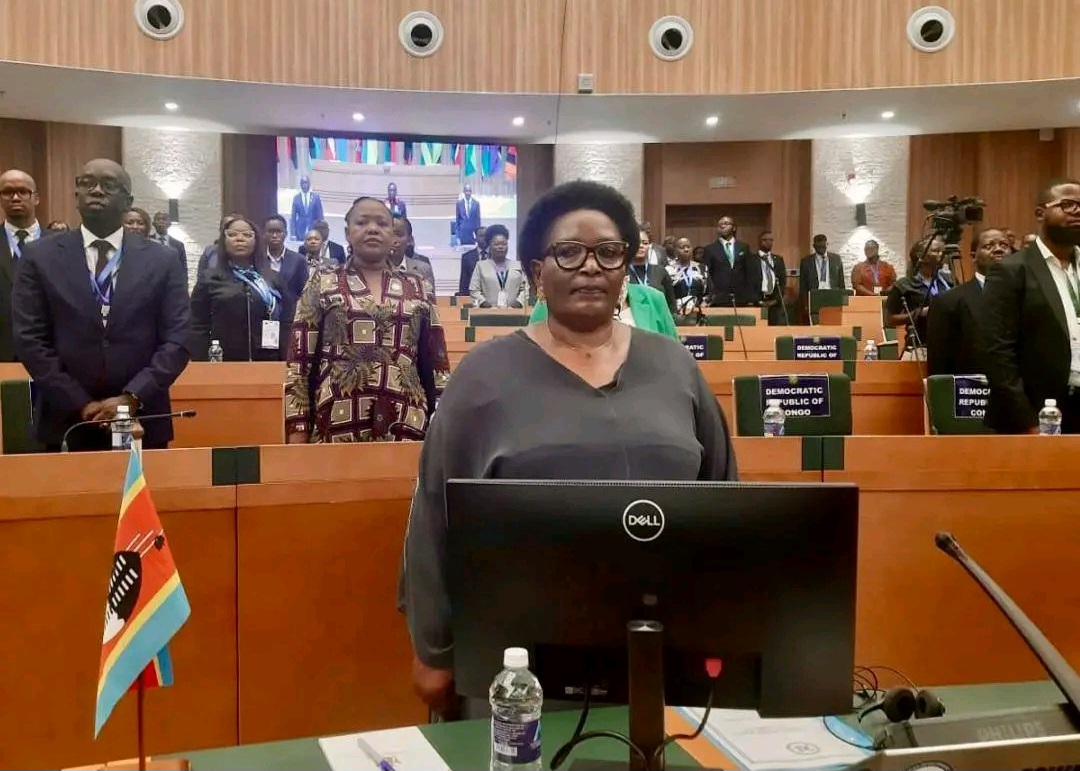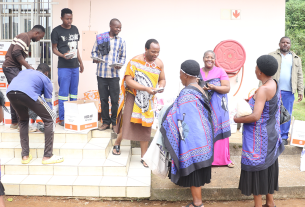BY MBONGENI NDLELA
MBABANE – Eswatini has made a strong case for diplomatic solutions and regional unity at the Southern African Development Community (SADC) Extraordinary Summit on the security situation in the Democratic Republic of Congo (DRC).
The high-level meeting, held in Harare, Zimbabwe, on January 31, 2025, brought together heads of state and government to discuss the escalating violence in the eastern DRC.
Representing His Majesty King Mswati III, Eswatini’s delegation was led by Deputy Prime Minister (DPM) Thulisile Dladla, accompanied by Minister of Foreign Affairs and International Cooperation Pholile Shakantu and other senior government officials. Dladla delivered Eswatini’s position with a clear call for diplomatic engagement over military action in resolving the crisis.
Eswatini’s Position: Diplomacy Over Military Force
In her address, Dladla reaffirmed Eswatini’s commitment to regional peace and security, extending condolences to the families of those affected by the ongoing conflict.
She stated that a sustainable solution cannot be achieved solely through military means, highlighting the urgent need for diplomacy, mediation, and humanitarian support.
Eswatini strongly advocated for:
• An immediate ceasefire to prevent further bloodshed and instability.
• Strengthening diplomatic efforts through regional mediation frameworks.
• A strategic review of the SADC Mission in the DRC (SAMIDRC) to ensure its effectiveness in fostering peace.
• Urgent humanitarian intervention, including restoring essential utilities, providing food supplies, and ensuring medical access for displaced individuals.
• Dignified repatriation of the deceased, acknowledging the sacrifices made by soldiers and civilians alike.
Dladla underscored that military engagement alone cannot bring lasting peace to the DRC, urging SADC to balance its operations with intensified political dialogue.
SADC’s Coordinated Response
The summit provided a platform for regional leaders to assess the worsening humanitarian and security situation in the DRC. SADC leaders acknowledged the sacrifices of troop-contributing countries and the role of SAMIDRC forces. Key resolutions from the meeting included:
– Strengthening regional coordination to support a sustainable resolution to the conflict.
– Mandating the SADC Organ Troika to engage all warring parties in renewed dialogue to facilitate a ceasefire.
– Urging international partners, including the African Union (AU) and the United Nations (UN), to support SADC’s peace efforts.
– Ensuring the restoration of essential services, such as water, electricity, and medical care, to alleviate civilian suffering.
– Facilitating safe passage for the injured, allowing them to receive necessary medical attention.
– Mobilizing emergency food aid to curb the worsening humanitarian crisis.
These measures reflect a dual approach—leveraging military presence while intensifying diplomatic and humanitarian efforts.
A Call for Unity and Decisive Action
Eswatini’s delegation called on SADC to maintain its credibility as a regional peace and security guarantor. Dladla emphasized that the mission in the DRC must be backed by a well-defined strategy that integrates military operations with political dialogue and peacebuilding initiatives.
“Without a strong diplomatic framework and a clear roadmap for sustainable peace, our military efforts risk being short-lived,” Dladla warned. She called for greater unity among SADC member states, urging them to remain steadfast in their commitment to long-term peace in the DRC.
Conclusion and the Way Forward
As the summit concluded, there was a shared commitment among SADC leaders to pursue enhanced diplomatic efforts, humanitarian interventions, and continued engagement with the DRC government. Eswatini pledged to work alongside other SADC members to ensure lasting stability in the region.
With tensions in the DRC remaining high, SADC’s next steps will be crucial in determining whether peaceful negotiations or continued conflict will shape the region’s future. Eswatini’s strong call for diplomacy over force underscores a growing recognition that Africa’s conflicts require political solutions, not just military might.



